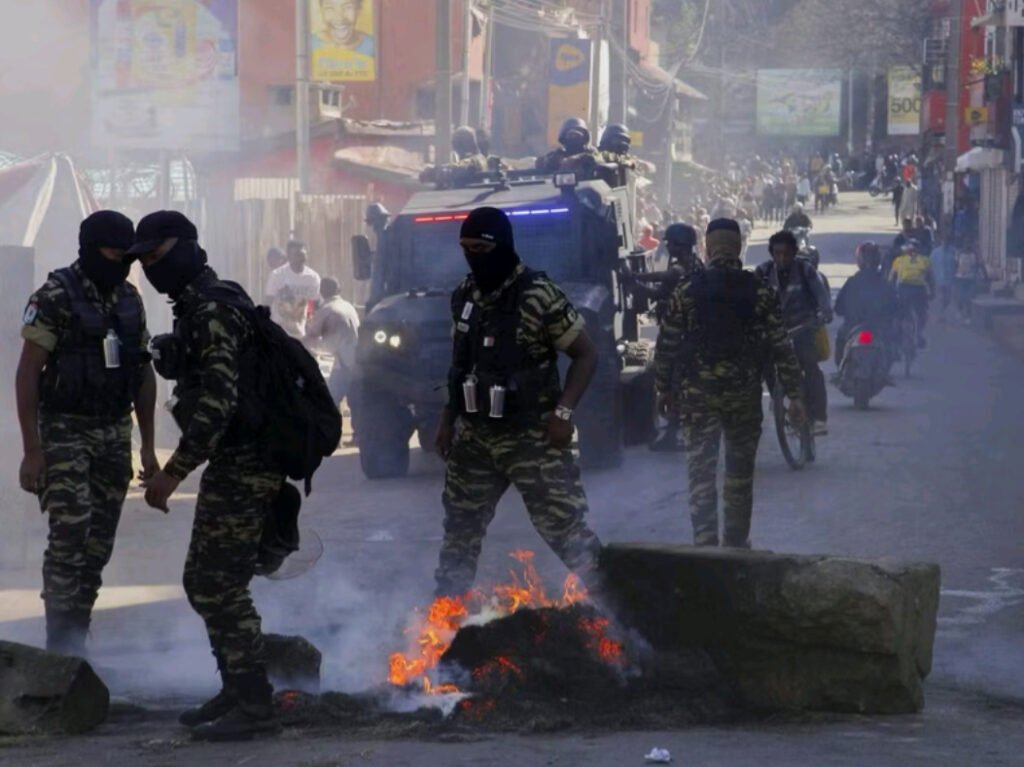In late September, protests erupted across Madagascar after weeks of crippling water and power outages in the capital city Antananarivo. What began as anger over failing utilities quickly escalated into a revolt against President Andry Rajoelina’s government.
Demonstrators targeted the homes of high-profile politicians, chanting for reform and accountability in a country long strangled by centralised control.
Jiro sy Rano Malagasy (JIRAMA), the government-run electricity and water company, sits at the centre of the unrest as its chronic failures fueled the anger that spilled into Madagascar’s streets. The country’s centralised economic model has demonstrated flawed governance, with constant blackouts and water cuts becoming the order of the country.
The discontent first boiled over on September 25th, when local councillors were arrested for protesting against water and electricity outages in Antananarivo. Within days, youth-led demonstrations had spread to other towns and cities, fuelled by social media and inspired by other Gen Z uprisings in Indonesia and Nepal.
According to the United Nations, at least 22 people have been killed and more than 100 injured since the protests began.
JIMARA’s failures, however, are not new. The utility has long struggled with inefficiency, poor management, and tariffs too low to sustain operation. Only 36 percent of Madagascar’s 32 million citizens are connected to the electricity grid, one of the lowest rates in Africa.
Despite receiving 722 billion Ariary (about $150 million) in government subsidies in 2023, more than twice its original allocation, JIRAMA remains crippled by debt.
Instead of liberalising utilities or encouraging private competition, the Malagasy government clung to control, funnelling public funds into loss-making entities shielded from accountability. The consequences led to small businesses struggling to function, hospitals operating in darkness, and citizens depending on generators.
According to the World Bank, with an average annual income of just $545, the monopoly-driven model has left millions in economic paralysis in Madagascar.
The protesters’ demands later exceeded power and water. They called for Rajoelina’s resignation, the dissolution of parliament, and the creation of an independent electoral commission. Many view this as a generational revolt, a pushback against decades of political monopolisation and bureaucratic patronage.
Over the last weekend, the unrest entered a dangerous new phase when a renegade army unit joined the protesters, marking a turn in the standoff. Soldiers from the Army Personnel Administration Centre (CAPSAT) installed General Demosthene Pikulas as the new military chief during a ceremony at military headquarters, attended by Armed Forces Minister Manantsoa Deramasinjaka Rakotoarivelo.
President Rajoelina denounced the move as an “attempt to seize power illegally,” but the defection has emboldened protesters and exposed deep divisions within Madagascar’s security establishment.
On Tuesday, 14th of October, the crisis reached a climax as the country’s army Colonel Michael Randrianirina announced that the military had taken charge of the nation after parliament voted to impeach President Rajoelina, who fled Madagascar amid the escalating unrest.
“We are taking responsibility to restore stability and order,” he declared.
A Lesson for the Rest of the Continent
Across Africa, Madagascar’s crisis resonates as a warning against excessive state control and a centralisation economy. Where monopolies dominate, stagnation follows. Nigeria’s telecommunications revolution offers a vivid lesson.
In the 1980s, the Nigerian Telecommunications Limited, a state-owned company, had 30,000 subscribers. But after privatisation in the early 2000s, competition soared. Today, Nigeria has over 169 million active phone lines as of January, a reflection of how free enterprise can democratise opportunity and drive innovation.
Another example is how Kenya’s telecom liberalisation unlocks private investment. By opening markets and adopting pro-competition policies, Kenya drew private investment that transformed its digital economy. These instances show that economic liberty, not state monopoly, fuels real progress.
More than political revolution, Madagascar needs an economic revolution by transcending from monopoly to transparent management and competitive pricing. Refusing reform, however, risks further chaos. The current protests are about the failure of centralised governance, not just failed utilities.














